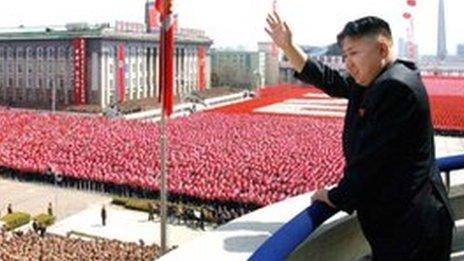North Korea to cut hotlines with South amid Kaesong shutdown
- Published
The BBC's Steve Evans reports from the border between North and South Korea.
North Korea has vowed to cut two key communication hotlines with the South, amid rising tensions after Pyongyang's recent rocket and nuclear tests.
It comes after Seoul suspended its operations at the jointly-run Kaesong industrial complex in the North.
Kaesong is one of the last points of co-operation between the two Koreas and a key source of revenue for Pyongyang.
The North has called the shutdown "a declaration of war" and has designated Kaesong as a military zone.
Seoul says the suspension is aimed at cutting off money the North uses for nuclear and missile development.
Pyongyang carried out its fourth nuclear test last month, and launched a satellite into space on Sunday, drawing international condemnation.
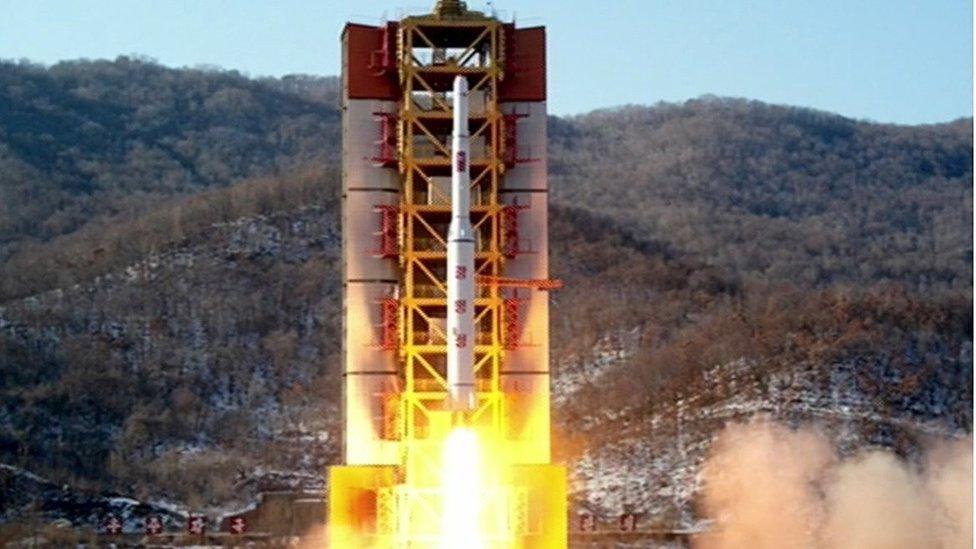
The rocket launch followed a similarly condemned nuclear test recently
North Korea previously cut communication hotlines with the South in 2013, but reopened them after relations improved.
The hotlines, which are intended to defuse dangerous military situations, include one used by the military, and another used to communicate with the UN Command at Panmunjom in the Demilitarised Zone. A third hotline is maintained by the Red Cross.

Analysis: Steve Evans, BBC Korea correspondent
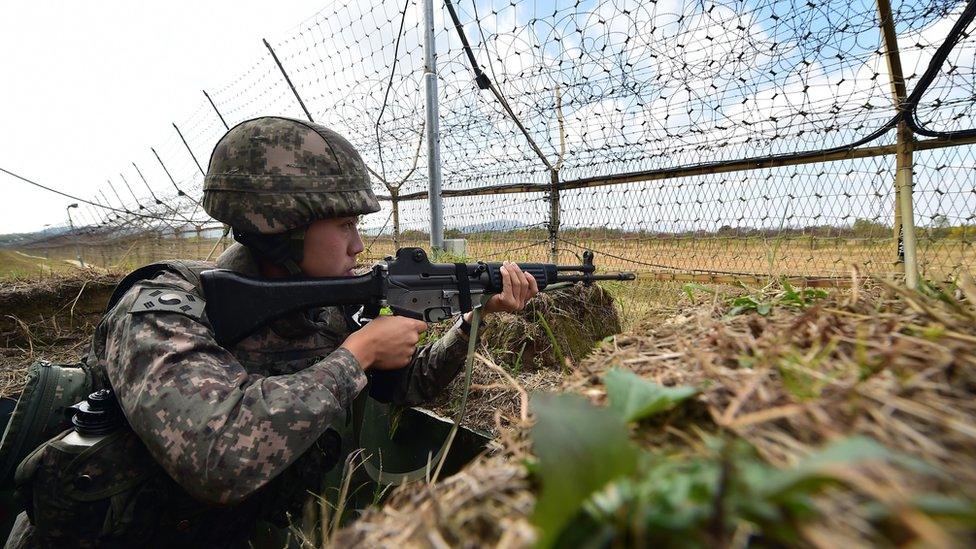
Relations between North and South Korea have deteriorated following Pyongyang's nuclear test
It seems odd but the hotlines between North and South Korea get disconnected precisely when they're most needed.
When the two halves of the peninsula get along, if not amicably then without actually snarling at each other, the links are quiet and unnecessary.
When poor relations descend to worse, the lines get cut as a signal of displeasure.
The system was set up after the 4 July 1972 Joint Communique which was the first formal agreement between Pyongyang and Seoul since the division of Korea in 1945.
When the hotlines were last severed, in 2013, it was reported that the two sides would normally speak twice a day.
A senior North Korean military official was quoted as saying at the time: "Under the situation where a war may break out any moment, there is no need to keep up North-South military communications."

On Thursday, Pyongyang vowed to seize the assets of South Korean companies in Kaesong, and said all workers from the south had to leave by 17:30 local time (08:30 GMT).
South Korean companies had already started withdrawing managers, equipment and stock after Seoul announced the suspension.
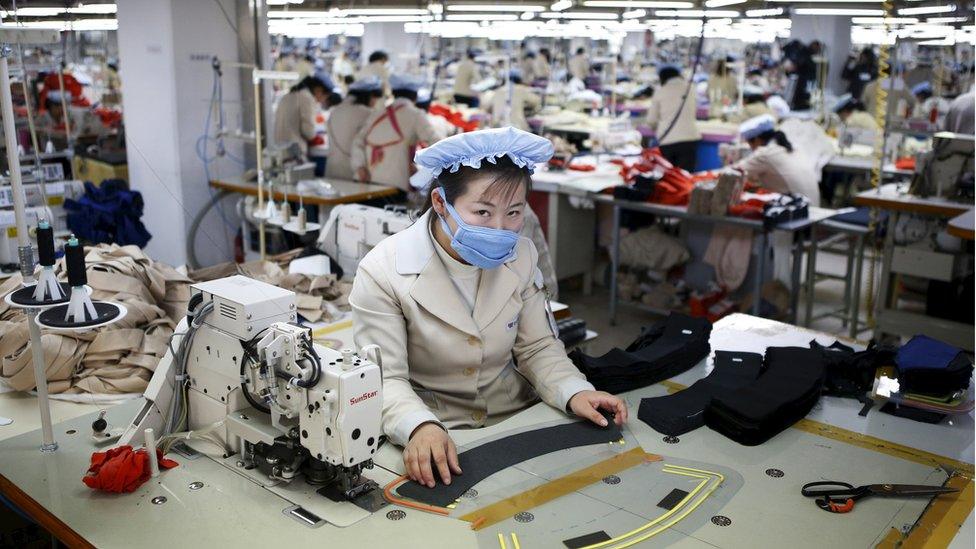
Kaesong was the last major point of co-operation between the Koreas
And South Korean officials said that all 280 workers who had been at the facility finally crossed into the South several hours after the deadline expired.
Business owner Chang Beom Kang told the Associated Press that an employee, who drove to Kaesong to pick up thousands of items of women's clothing produced by his firm, had almost reached the border when he had to return to the factory to unload because of the North's decision to freeze all South Korean assets there.
Other managers from the South told the BBC they were shocked and frustrated by the suddenness with which their businesses in the North had had to cease production.

What is Kaesong?
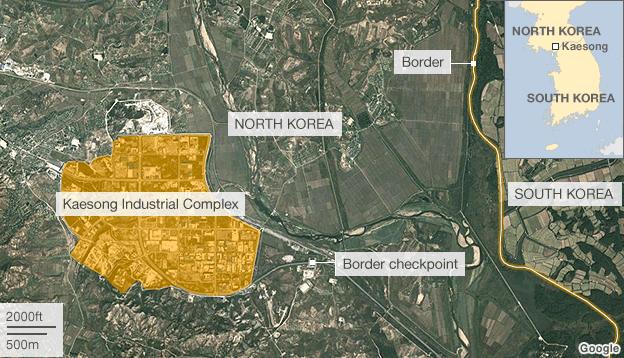
Joint industrial complex located inside North Korea just across from the demilitarised zone
Launched in 2004 - it is a source of badly-needed cash for the North
124 companies operate there from industries including clothing, textiles, car parts and semiconductors
South Korean firms pay about $100m (£69m) a year in wages. About 54,000 North Koreans work there
Last shut down in April 2013 - for four months - after US-South Korean military drills angered North Korea

The current shutdown came as the US Senate voted unanimously in favour of tougher sanctions against North Korea.
The draft legislation targets any person or entity trading or financing anything related to weapons of mass destruction, conventional arms proliferation, North Korea's rocket programme, money laundering, narcotics trafficking, human rights abuses, activities that threaten US cyber security, and the import of luxury goods.
All were already sanctioned, but the measures aim to tighten the restrictions.
The bill also authorises $50m (£34m) for radio broadcasts into North Korea and humanitarian aid programmes.
The House of Representatives passed a similar bill last month. The two will now have to be reconciled into a final measure needing President Barack Obama's sign-off.
- Published10 February 2016
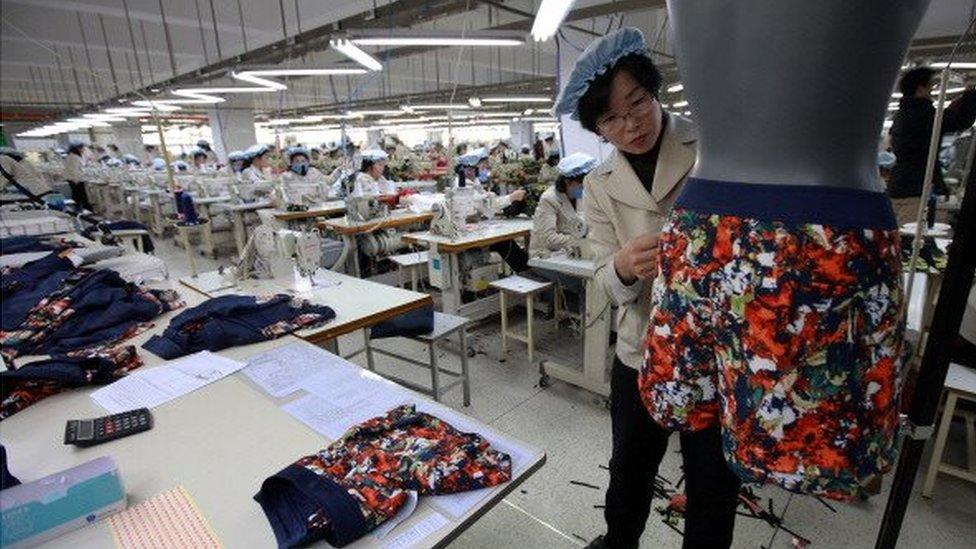
- Published10 February 2016
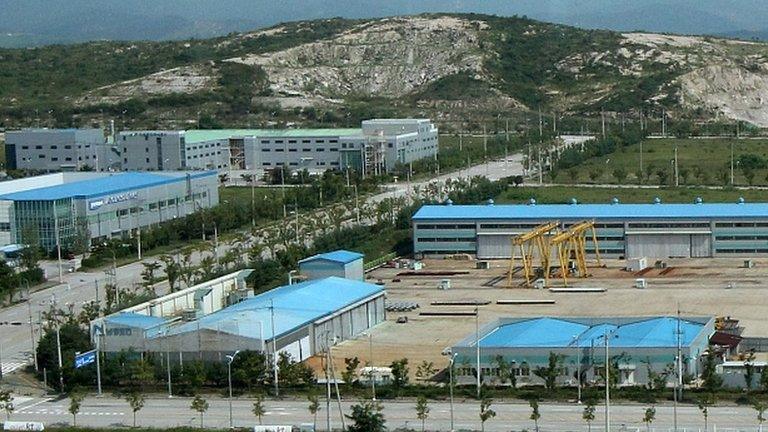
- Published8 February 2016
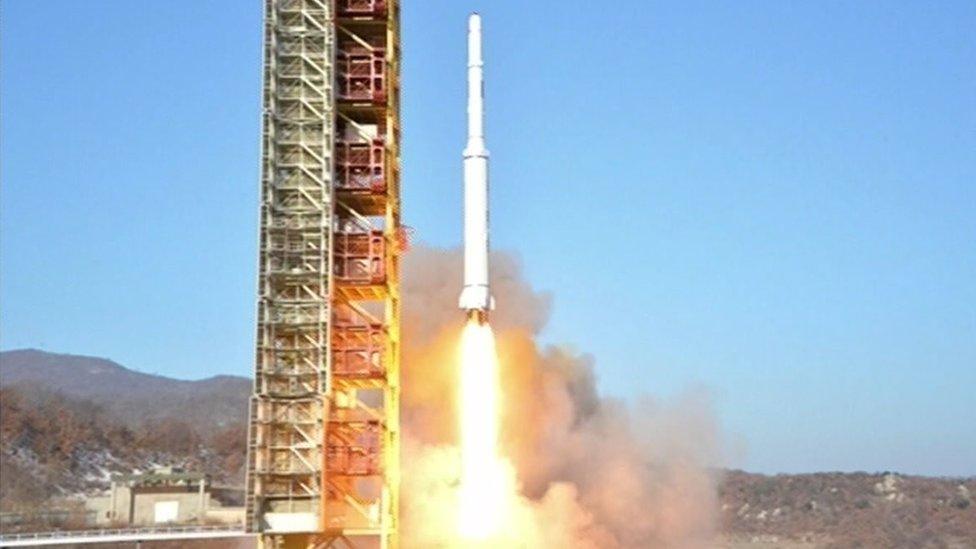
- Published10 August 2017
- Published7 February 2016
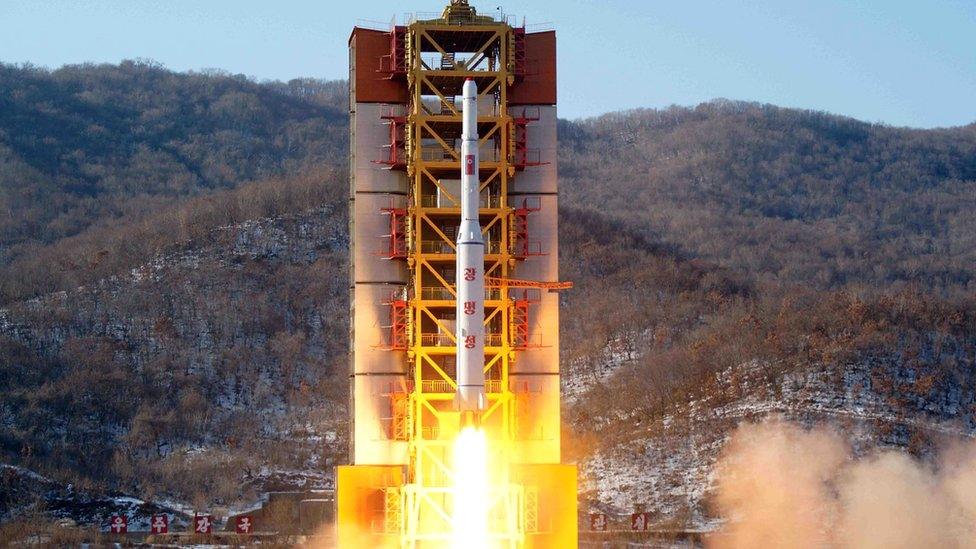
- Published15 September 2015
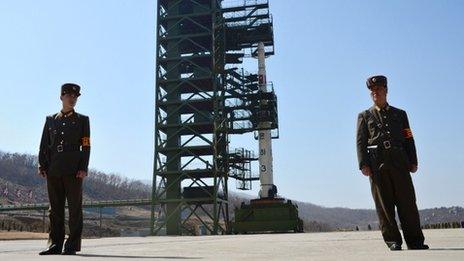
- Published3 September 2017
